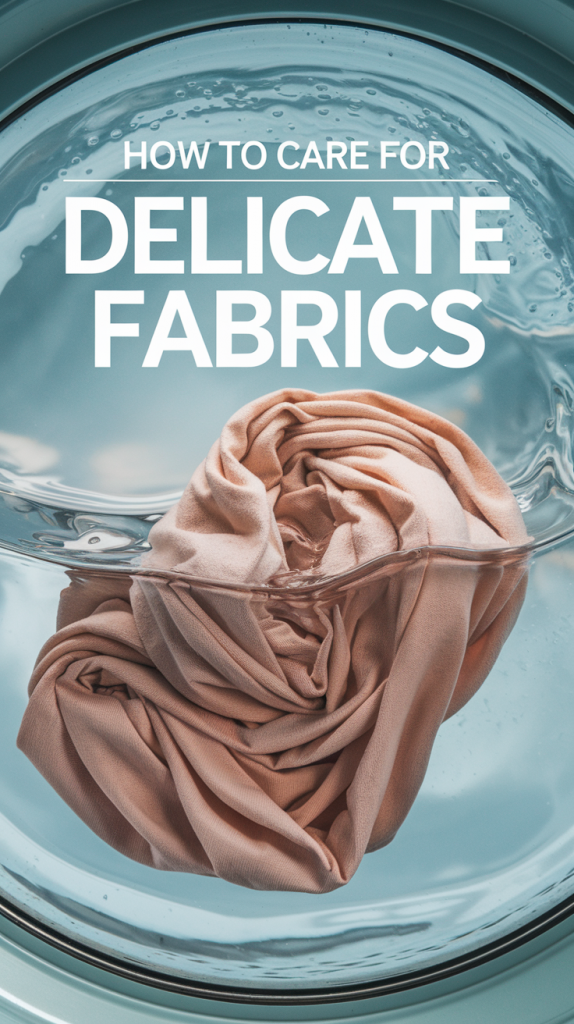How to Care for Delicate Fabrics During Summer: Expert Tips for Lasting Beauty
Impeccable weather means the beach, summery picnics, and all the fun summer activities one can imagine commencing. Although the delicate fabrics tend to lose their beauty in the heat. Inappropriate summer management has resultantly ruined a few of my favorite clothes. Luckily, through the years I have learned some not-so-secret tricks to take care of delicate fabrics even in the worst of summers. Allow me to share some beautiful tips and favorable insights that I have gathered to help your clothes remain stunning, beautiful, and vibrant in color and ready to wear all season long.

Identifying Delicate Fabrics
To care for delicate fabrics, the initial step is to identify them. In my experience, below are the delicate materials that require extra work and care the most:
- Silk: Very delicate and thin. Sensitive to perspiration as well as temperature.
- Lace: Made of synthetic fibers or cotton. Tends to receive rips and snags quite easily.
- Chiffon: Fragile and see-through. Easily harmed with harsh treatment.
- Cashmere: Tends to shrink and felt with steam and warm weather.

Here’s a quick reference table to help:
| Fabric | Heat Sensitivity | Washing Method | Drying Method |
|---|---|---|---|
| Silk | High | Hand wash | Flat air-dry |
| Lace | Moderate-High | Gentle cycle | Air-dry |
| Chiffon | High | Hand wash | Flat air-dry |
| Cashmere | Very High | Hand wash | Flat air-dry |
Proper Washing Techniques
The care that needs to be taken when washing delicate fabrics in summer is that a gentle approach is recommended. A gentle cycle should be accompanied by cold, pH-neutral detergent, as rough cleaning chemicals and hot water will destroy the fibers rapidly.
Hand-Washing vs. Machine-Washing
Here, however, I am completely aligned with my colleagues, who believe in the handwashing method. You have total oversight of the washing procedure. Let me illustrate with an example:
- Prepare the water: Start by obtaining a basin full of cold water. From here, add a gentle, fabric-specific laundry detergent. PH-neutral detergent is suggested since it has a neutral pH, meaning it’s less harsh than regular detergents.
- Soak and wash cleanse: Now submerge the clothes for 10-15 minutes. Encapsulate the items around and gently push; make sure to never twist or wring.
- Rinse thoroughly: Wash with cool water until the detergent is totally washed away.
In case you do not have the time to do the laundry by hand, you can use the machine. If this is the case, set the washing machine on the gentlest cycle with cold water and use a mesh laundry bag for added protection.

Here’s a comparison table for washing methods:
| Method | Benefits | Drawbacks |
|---|---|---|
| Hand-Washing | Gentlest, full control | Time-consuming |
| Machine Washing | Convenient, faster | Risk of fabric damage if incorrect cycle |
Drying Delicate Fabrics
The technique you use to dry delicate fabrics significantly affects their longevity. Quick drying during summer may seem like it’s the best option, but my experience has taught me that being patient works best.
- Avoid direct sunlight: Sunlight weakens fibers and makes colors fade.
- Air dry flat: Your fine fabrics should always be placed on a clean, dry towel. It goes a long way in preserving shape and prevents stretching.
- Use indoor drying racks: Clothes dried outdoors should be placed in the shade.
Storing Delicate Fabrics During Hot Weather
Storing delicate clothing items properly can prolong their lifespan significantly. From my knowledge, excessive heat and humidity are the biggest culprits when it comes to damage, so here is what I do to ensure they are stored optimally:
- Use breathable storage: Avoid using plastic bags. Opt for cotton garment bags, which allow for airflow.
- Maintain a cool and dry environment: Garments should always be stored in cool, dry locations that are away from direct sunlight, dampness, or heat.
- Use natural repellents: Sachets made of lavender and cedarwood blocks aid in preventing damage from insects, mold, and mustiness.
Additional Tips for Protecting Fabrics
Some of these strategies might prove useful for you too:
- Clean stains right away: When it comes to spotting cleaning stains and sweat stains, seek to do it as soon as possible since sweat and stains become more difficult to remove in warm weather.
- Rotate clothes regularly: Avoid wearing a fresh piece of clothing on consecutive days to minimize wear.
- Steam instead of iron: Always prefer steaming to ironing as it lowers the risks of heat damage.
Conclusion
Though it requires caution, taking care of intricate fabrics during warmer months isn’t particularly difficult. With identification, careful washing, gentle drying, and proper storage, you can relish your delicate garments year after year without wearing them out. You too can do this after witnessing the difference in the life and appearance of delicate clothing after following my suggestions.
If you want to maintain your wardrobe in pristine condition, then start using these techniques today so that your apparel will look great all summer long.
FAQs about Caring for Delicate Fabric in the Summer Heat
Can I machine dry delicate fabrics like silk and lace in the summer?
Gentle cycle and air drying can mitigate some of the damage, but I do not recommend machine drying due to heat and friction. Use air drying exclusively to maintain the integrity of the fibers.
How about dry cleaning? is that a suitable method of cleaning delicate fabrics?
Occasional dry cleaning is acceptable, especially for silk and lamb’s wool blends, but dry cleaning too frequently can compromise the structure. Wash silks and wool blends as little as possible.
In the hot months, how frequently should delicate garments be washed?
2-3 wears is standard, or stained and highly perspired pieces should be cleaned immediately. Taking extra care for delicate pieces is encouraged as they can get damaged more easily.
What is the most suitable detergent for delicate fabric?
Mild detergent specifically marked for delicate or toddler clothing is the best option. These fibers are more delicate and protect the integrity of the threads.
Can I put fabric softener when washing delicate materials?
Steer clear of adding softener as they eliminate the ability to breathe and weaken the threads. Instead, use a splash of vinegar at the last rinse.
Should delicate clothes be stored hanging or folded?
Hanging can cause too much stretching of certain fabrics like silk and cashmere, so exercise caution. Fold delicate fabrics with care to maintain their shape.

